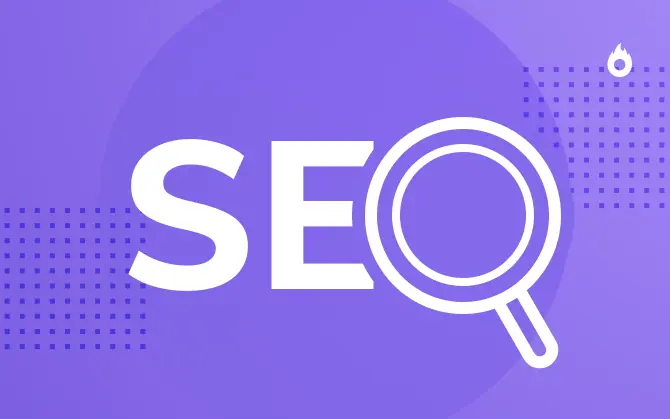
Search Intent: What Is It, and How Does It Impact SEO?
Learn about search intent, its importance for SEO, and check out tips to identify it through keywords.

The quality of your content impacts your website or blog’s results on search engines like Google, but it’s also necessary to go beyond solid text to ensure top search performance. It’s necessary to understand internet users’ search intent.
Google’s algorithm is constantly improving and isn’t based solely on keywords to know if certain content is relevant or not. Digital marketing is becoming increasingly humanized and concerned about users.
Interpreting the meanings and purposes of a search and choosing content with a good user experience are important aspects for your text to rank well.
Analyzing which questions your persona is asking, what answers they are looking for, and how it relates to the keyword in your text will improve your SEO strategy and boost your posts on search engines.
What is search intent?
Search intent or user intent is what the user expects to obtain from a Google search.
When searching online, users already have expectations regarding the results that will be found with the question or sentence that was entered in the search box.
Take this example: When typing in “how to make a wallet”, internet users expect to find tips and tutorials on how to create their own wallet. If the search had been “buy a wallet,” the expectation would be that they’d see offers for wallets on different websites.
If the search “buy a wallet” displays an offer for a backpack, it means something is off with the search engine, because the searchers would not be interested in that product.
There’s an intention of what will be found from the moment the search is carried out. This intention is what drives the results that the tool will display to the user, like a prediction of what they expect to see when they ask or request information about something.
VIDEO: PAID OR ORGANIC TRAFFIC: Which is BETTER if you’re just GETTING STARTED? | Hotmart Tips
What are the main types of search?
To identify users’ search intent, it’s necessary to understand that there are different types of searches that someone can perform. The main types are navigational, informational, and transactional searches.
Navigational searches are those where the user wants to find a specific website or address. Usually, they enter the brand name as a shortcut to get to the link.
1. Informational Searches
Informational searches have the purpose of obtaining information, answering a question, or learning more about something.
For example:
“What’s the largest city in Texas?”
“How much does an SUV cost?”
“What country has the largest population?”
2. Transactional Searches
Transactional searches, on the other hand, are those with the intention of converting. These users are already interested in buying, so the search is focused on finding the best options for their conversion.
Examples:
“Athletic shoes near me”
“Greek restaurants in my area”
Commercial Intent
Commercial intent is the method of predicting the probability that someone searching for a particular keyword could eventually become a prospect or paying customer. Commercial intent can be evaluated in one way by tracking the number of people who advertise using a specific keyword in Adwords, among other platforms.
Commercial intent should be considered as important as, and generally speaking, more important than search volume alone.
Regarding commercial intent, each of the millions of available keywords falls into one of three categories:
Purchase Now Keywords
These are the keywords that consumers use within minutes of making a purchase. People searching for these keywords may have their credit card in hand when they conduct a search.
Here are some phrases that frequently appear in these kinds of keywords: buy, coupon, discount, deal(s), free shipping, etc.
As expected, these keywords convert incredibly well. They may not have a high search volume, but their conversion rate is through the roof.
Product Search Terms
Product Keywords are queries that target a particular product category, brand, or service. People who use Product Keywords are typically earlier in the buying cycle than those who use Buy Now Keywords.
In other words, they are effective, but not as effective as Buy Now Keywords.
Product Keywords typically consist of the following phrases:
Review
Identifiable brand name (e.g., “Reebok”)
Specific item (e.g., “Google phone”)
Category of goods (“web hosting” or “soccer shoes”)
Cheap/Affordable
For instance, a person who searches for “cheap shoes” has already decided to purchase shoes… They are simply seeking a product within their price range.
3. Informational Search Terms
The overwhelming majority of online keywords are Informational Keywords. As you might expect, people seeking information tend to convert poorly.
(At least not immediately)
However, you cannot disregard Informational Keywords because they comprise such a large portion of the keywords people search for.
Information Keywords typically include the terms:
How to
Most Effective Ways to
Tips/Strategies
The most effective way to utilize Informational Keywords is to identify terms with a high search volume and low competition. And develop content based on these keywords.
Then, add as many of these visitors as possible to your email list. Thus, you will be the first business they consider when they are ready to make a purchase.
Why is it important to identify users’ search intent?
Keywords play a key role in improving search results for content on online search engines, but it’s important to understand we aren’t just dealing with the algorithms, but with people.
The sole strategy of listing a keyword for your text meets the search engine’s requirements but doesn’t analyze the human manner in which these searches actually happen.
Over time, it became apparent that it was necessary to balance the robot technology and the user’s experience and give the precise answer that users really expect when they have a question or want information.
Google has been improving its algorithm to understand the meaning of user searches and their purposes. The combinations of terms and words point out which behaviors and repetitions take place while a search is being performed.
Identifying search intent is about studying the persona behind the search tool. Your SEO strategy will be enhanced if you focus on the persona’s search intent and offer content that’s a good match for the terms being searched.
The production of content will contribute to your website’s organic traffic because objective answers and information will be provided, which will show Google’s algorithm that your text deserves a better position on the platform’s pages.
VIDEO: How to create a buyer persona for your business | Hotmart Tips
Identifying the search intent behind a keyword
Use keyword tools
Tools, such as Google Keyword Planner, present keyword ideas with good results and the average number of searches for each one, and you can also make comparisons between similar keywords.
Through these options within the tool, it’s easier to observe the key subjects and questions that are mostly on the users’ minds. You’ll be able to choose the keyword that will obtain the expected result more accurately.
Analyze Google’s search engine results page (SERP)
The SERP, which stands for Search Engine Results Page, is Google’s results page, and it’s through this page that people can find your website or blog posts.
A very interesting point is that Google’s own search engine can obtain the search intent quite clearly. By entering your content’s keyword in the tool, it will be possible to view a series of results.
You’ll know how to create your content so that it’s in line with the other results found, and you’ll know with more precision what the person using that keyword will be looking for.
Aligning search intent with the marketing funnel
When building your marketing funnel, it’s important to have data and details on prospects and ideal customer profiles, including the kinds of queries and search terms they might use when researching or showing interest in similar products or services to yours.
It’s important to align particular search strategies with different subsectors within your marketing funnel to help build stronger targeting.
Check out Google’s suggestions and related searches
When you enter something into the search box, the site suggests other frequent searches based on the terms you have entered.
You can observe each of these suggestions and check which ones make the most sense, and which ones provide results that align with the text’s content.
Another way to better identify search intent is through related searches. These appear at the bottom of the search page and show other word and sentence combinations with the same term.
Rely on Google Trends
Google Trends is a tool that aims to point out search trends on certain search terms.
You can find popular topics and related searches, which regions search for that term the most, when it is more or less relevant, and customize your search by selecting specific topics and categories.
Focus on people’s behavior on search engines
As important as keywords are to SEO, understanding the search intent of those who use these keywords will help you build texts that are more objective and in line with what the user really expects to find.
This identification of the search intent assists in ranking your website on Google because the algorithm understands that your publication meets the user’s expectations and provides answers to the questions that are being asked on the platform.
Remember that keywords are a great way of discovering the search intent, as you can use tools, such as Keyword Planner or Google Trends, to identify the results for your chosen terms.
Searching through Google’s own page also helps you find the best results, related searches, and suggested searches that will guide your analysis of your persona’s behavior on Google.
If you’re ready to analyze users’ search intent and want more tips on how to appear in searches, check out this post in which we provide several tips on how to rank higher on Google.





